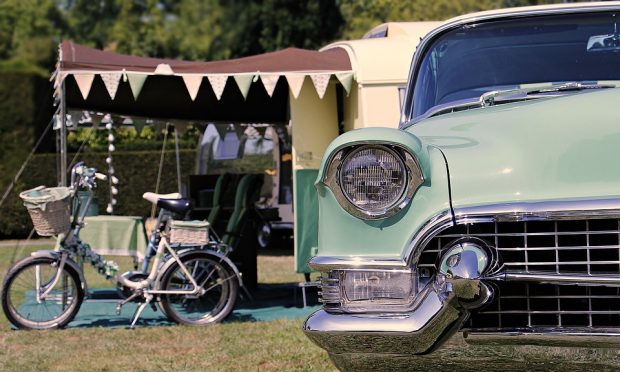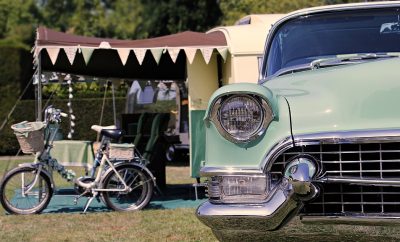Although your auto insurance rate is usually lower for a classic vehicle than a regular one, cheaper doesn’t also translate to easier. We’ll share what insurance companies want from you if you want affordable classic car insurance.
Is classic car insurance different from standard car insurance? The short answer is yes.
First, we’ll define what qualifies as a classic car. The major criteria for insurance coverage for a classic car is the age of the car (vehicle usually needs to be over 25 years old). The car also needs to be parked in a secure location, usually a garage.
The vehicle must be used only occasionally with low yearly mileage. You must have a good driving record. You must have access to another vehicle (the classic car cannot be your main transportation). And you must be able to show that the car is in good condition and receives regular maintenance.
Classic vehicle insurance can also cover:
- Antique farm vehicles
- Street rods manufactured before 1949 and modified
- Vintage cars made between 1919 and 1930
- Classic military vehicles
- Classic motorbikes
- Limited edition or collectible models
- Collector cars made before 1980
Qualifying for Classic Car Coverage
There are specific criteria you must meet for any auto insurance, but when shopping for classic or antique vehicle insurance, they are much more extensive.
Another requirement for getting this specialty insurance policy is providing documentation of safe storage parking for the vehicle and documentation of regular maintenance.
If the parking location for your classic car is not climate controlled, you’ll probably want to pay special attention to weatherizing your vehicle.
Qualifying for classic car insurance varies among insurance companies. Each insurer has its specific criteria for insuring antique and classic vehicles. They can also tell you what specific documentation is needed to meet those requirements. It pays to shop around.
As previously mentioned, one requirement for classic car insurance is limited use. You can’t use it for everyday commuting or running errands. Your policy may include mileage limitations as well as proof the car is being properly garaged if you do travel with it.
The limited use requirement usually does allow for you to travel to car shows and auto club meetings. Before choosing a classic car insurer, check whether they have travel restrictions if you plan to take your car on regular, multi-day, high mileage drives.

How Classic Car Insurance Is Different
Classic car policies include the provisions found in standard car insurance policies like property damage and bodily injury liability coverage. There are significant differences too. Some of the major differences include the vehicle’s valuation.
Each antique, classic, or collectible car is unique, so there is no set “book value” for specific makes and models. One of the steps you and your insurer will take is reaching an initial agreement on your car’s value.
An interesting aspect of valuing your classic car is that, unlike most vehicles, your classic or collectible will not depreciate and may go up in value. Your policy may have specific provisions regarding any needed repairs, as these special circumstances are likely to be significantly above regular auto repair costs.
These same special provisions can apply to transport, towing, and repairs. To get specialty insurance, your vehicle will have to already be restored to good condition.
If you own a newer car that has been modified or has other value-added customization, your car may still qualify as a classic.
How to Prepare for Insurance Shopping
Insuring your classic vehicle will mean you need to provide documentation of the condition of your vehicle, appraisals, or other valuations of the vehicle. You will also need to provide maintenance records and be able to demonstrate that the vehicle is garaged in a secure location.
Shop around for the best classic car insurance for your situation. Getting your documents together and talking with several insurers is the best way to find the most affordable options available for your vehicle.
Teresa Johnson writes and researches for the car insurance site, CarInsuranceComparison.com. She enjoys classic and antique car shows and has an interest in automobile restoration.
VN:F [1.9.22_1171]
VN:F [1.9.22_1171]
Source link


